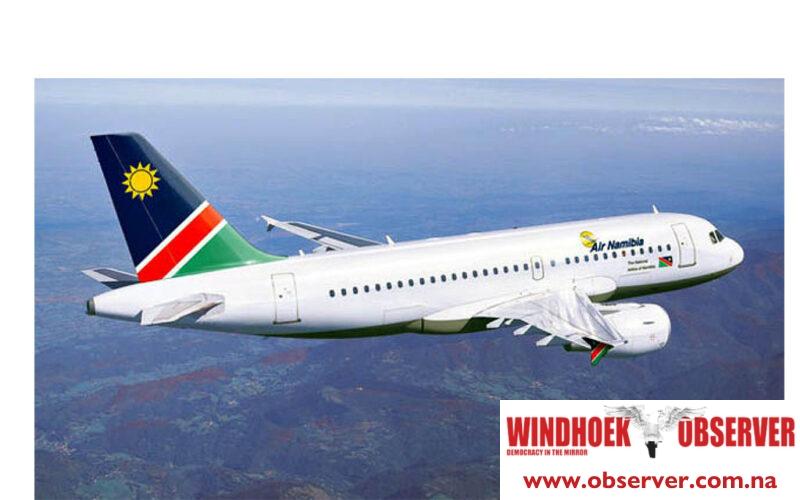Presidency announced this week that President Nandi-Ndaitwah has committed to reviving the national airline, Air Namibia through well-intentioned strategic measures aimed at avoiding past mistakes. The Government intends to pursue this initiative using a sustainable business model with a Public-Private Partnership (PPP) approach to provide a sound business case.
A market study is expected to be completed by June, the expression of interest for a Public-Private Partnership is to be finalised by August, negotiations should be concluded by December 2025 and the launch and official operations of the new airline are anticipated between June and December 2026.
In light of this development, Observer Money asked, independent aviation economist and researcher, Dr Joachim Vermooten and publisher and editor, Dr Guy Leitch about their thoughts on reviving Air Namibia and the struggles facing most African airlines.

Observer Money (OM): What do you make off Namibia reviving Air Namibia, given that most African airlines are struggling financially?
Joachim Vermooten (JV): The Namibian Government should carefully consider if and what it would do differently than before. If the same non-commercial approaches are taken or circumstances remain the same, then the result or outcome will be the same as before. A policy choice has to be made between stimulation of traffic volumes (tourism) and air connectivity of airports on the one hand versus economic regulatory protection and subsidization of a State-owned national airline on the other. The overall socio-economic impact favours tourism and air connectivity and competitive conditions.
OM: What is the state of the African airlines at the moment?
JV: Most sub-Saharan airlines are loss making except a few that are able to generate sufficient traffic to support the operational costs of capacity provision. Most African airlines have inadequate market access, limited to their home markets and restrictive bi-lateral air services agreements (BASAs). Therefore, they are locked into situations of inadequate demand (support) at reasonable prices to cover the costs of their scope of operations and not able to generate economies of scale or scope. Notable exceptions are Ethiopian Airlines and Kenya Airways. The level of success of Northern African airlines is mostly dependent on their ability to access to the European internal market under competitive conditions with EU based airlines.
OM: Why do state owned airlines like Air Namibia struggle?
JV: Without the establishment of an open internal (domestic) common market of States (like a free trade area), airlines are restricted to build their networks from the States where they are registered. Traffic volumes are generally sparse and less than what is required to generate adequate use and utilisation of equipment. Therefore, most African State-owned national airlines cannot attain enough economies of scale and scope from their home markets to become profitable. Surplus capacity cannot be used on underserved routes elsewhere on the African continent as is the case in Europe, as example.
OM: Some governments that have revived national airlines in JVs with Ethiopian Airlines, should Air Namibia go this route?
JV: JVs with Ethiopian Airlines assure more commercially based decisions and management, but such airlines still remain limited to sparse traffic of such home markets and BASAs which may not be able to generate sufficient economies of scale and scope, with the result that such airlines continue to incur losses and require state subsidies.
OM: Anything to add?
JV: Once an airline has been set-up, start-up losses have to be covered and new additional capital to for later replacement of equipment, systems and non-recoverable expenses is always required. That is why most larger airlines are listed entities to be able attract new capital (based on investment principles). The Namibian Government would have to consider if sufficient funding can be made available to set up and sustain a state-owned airline, in preference to other budgetary priorities.

Observer Money (OM): What do you make off Namibia reviving Air Namibia, given that most African airlines are struggling financially?
Guy Leitch (GL): Airlines the world over privatised 30-40 years ago, and it makes very little sense for a government to think it can run an airline. And the cost of running a failing airline makes any so called flag carrier benefits irrelevant.
OM: What is the state of the African airlines at the moment?
GL: Less than a handful of African airlines are profitable and off those 95% are privately owned. Almost every state-owned airline with the exception of Ethiopian is loss making.
OM: Why do state owned airlines like Air Namibia struggle?
GL: Because airlines are, capital intensive, skills Intensive and have very tight margins. This means that there is no room for a government development agenda and the employment of cronies or unskilled people.
OM: Some governments that have revived national airlines in JVs with Ethiopian Airlines, should Air Namibia go this route?
GL: Ethiopian has a strong skill set and will give the new airline a better chance of success – albeit as a junior partner.
OM: Anything to add?
GL: The notion of flag carriers is dead, especially in the age of interlining.




